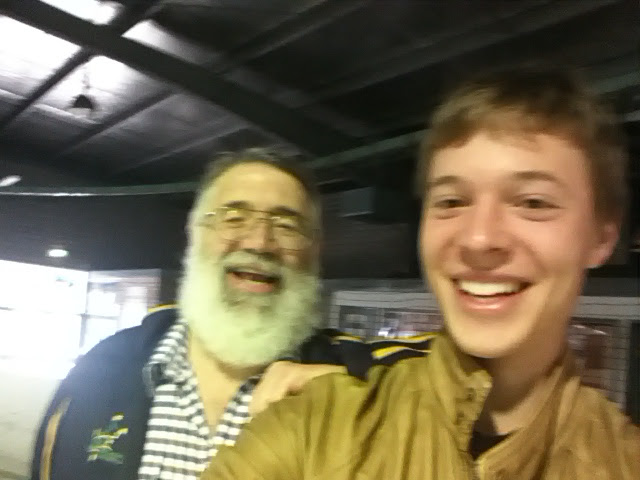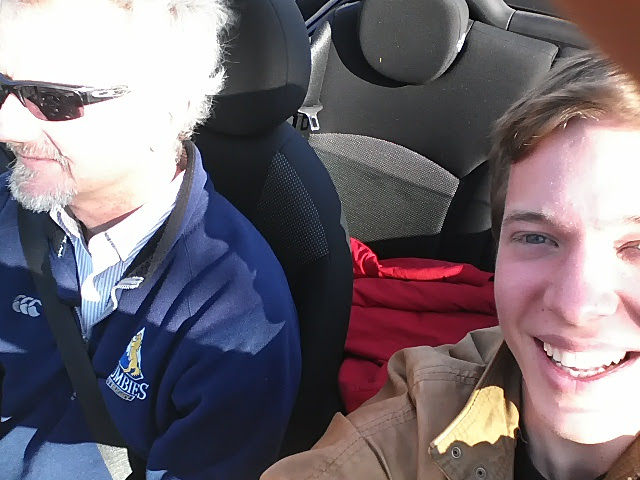Studying with world-class academics. Or how I went ice skating with my lecturer.
Our blogger Jesse Zondervan knew he would be studying with some of the best Earth scientists in the world. He didn’t know he’d get to hang out with them too.
I’m quite surprised to find an ice rink in Australia. Apparently it’s open the whole year round too, something that doesn’t even happen in the Dutch summer. I’m driving there in the BMW of one of my professors.
Bear, a friendly, bearded Canadian ice hockey coach, and my professor for a groundwater course, has invited us for an afternoon of ice skating. I’m the only one that turns up and so we go there with just the two of us.
The Netherlands is well-known for its world champion ice skaters, but I must confess I’m not one of them. As I try to regain my balance and agility on the ice after a year of not having done it, Bear gracefully circles around the rink.
I learn that he’s the coach of an ice hockey team and that ice hockey is an important part of his life. After a while another skater joins us on the ice. He appears as a relaxed, white-haired man with a goatee, without the broad ice hockey shoulders of Bear. He’s another academic, called Brad, who knows Bear from coaching one of Brad’s children.
Brad, too, needs to take it slow in the start, so we have a chance to talk. Brad’s got a New York accent and has a Dutch-sounding last name. Opdyke, he tells me, comes from his Dutch ancestors who moved to New York (then New Amsterdam) in the seventeenth century.
After a drink in the local club we head home. The club is a big venue with gambling facilities, many rooms for events and a bar in which we settle with a beer. It’s not something I’ve seen before as it’s not really a thing in the Netherlands. After our beer in the club, Brad takes me back to campus in his convertible Mini Cooper and we enjoy Canberra’s balmy September weather.
The ANU Research School of Earth Sciences has a very small student community with a much larger number of academics. It’s therefore not surprising we’re all quite friendly with each other. The school is the best in Australia and very highly ranked in the world. This means there’s a lot of interesting research going on. Brad for example, regularly joins boats on ocean expeditions and takes us to a research island on the Great Barrier Reef.
Over the year I’ve been here, I’ve been to the pub with some of my lecturers multiple times and joined them on fieldtrips. The nature of studying Earth Sciences means you get to know your lecturers If a trip to ice rink is on offer, I suggest you go.


